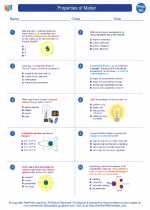Social Sustainability
Social sustainability refers to the ability of a society to function in a way that allows people to continue leading fulfilling, enjoyable lives. This includes ensuring that basic human needs are met, such as access to clean water, food, shelter, and healthcare, as well as providing opportunities for education and employment. Social sustainability also involves promoting equity and social justice, fostering strong communities, and preserving cultural diversity and heritage.
Key Concepts
- Basic Needs: Ensuring access to clean water, food, shelter, and healthcare for all members of society.
- Equity and Social Justice: Promoting fairness and equal opportunities, and addressing social inequalities and discrimination.
- Community Well-being: Fostering strong, inclusive communities that support the well-being of their members.
- Cultural Diversity and Heritage: Preserving and celebrating the cultural traditions, languages, and heritage of diverse communities.
Examples of Social Sustainability Initiatives
There are many initiatives and programs aimed at promoting social sustainability, including:
- Community development projects that improve access to education, healthcare, and infrastructure.
- Policies and programs that address social inequalities and promote diversity and inclusion.
- Efforts to preserve cultural heritage and support traditional knowledge and practices.
Challenges and Opportunities
While progress has been made in advancing social sustainability, there are also challenges that need to be addressed, such as:
- Income inequality and poverty
- Discrimination and social exclusion
- Access to healthcare and education
Addressing these challenges presents opportunities for creating more equitable and inclusive societies, where all individuals can thrive.
Study Tips
To study social sustainability effectively, consider the following tips:
- Understand the key concepts and principles related to social sustainability.
- Explore real-world examples of social sustainability initiatives and their impact on communities.
- Engage in discussions and debates about social issues and potential solutions.
- Stay informed about current events and social justice movements.
- Consider the interconnectedness of social sustainability with environmental and economic sustainability.
◂Physics Worksheets and Study Guides High School. Properties of Matter

 Worksheet/Answer key
Worksheet/Answer key
 Worksheet/Answer key
Worksheet/Answer key
 Worksheet/Answer key
Worksheet/Answer key
